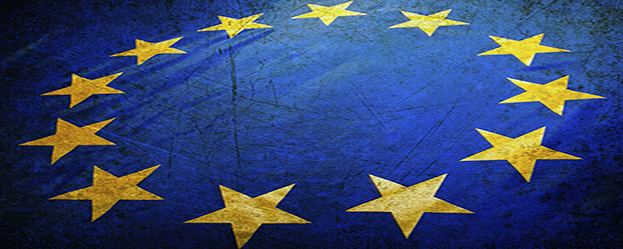This website uses cookies so that we can provide you with the best user experience possible. Cookie information is stored in your browser and performs functions such as recognising you when you return to our website and helping our team to understand which sections of the website you find most interesting and useful.
Business News Digital Labels & Publishers Legal Top Stories
Copyright Directive remains controversial as final draft agreed
By Chris Cooke | Published on Thursday 14 February 2019

Representatives of the European Commission, European Parliament and EU Council have agreed a final single version of the pesky European Copyright Directive, meaning the copyright reforming legislation is now very close to becoming law. Although there is still the matter of a final, final, final vote in the Parliament.
The copyright reforms have been a very long time in development, with the Commission publishing its original draft of the directive in September 2016. The music industry supported article thirteen has, of course, been among the most controversial elements of the whole thing. It seeks to change the copyright safe harbour utilised by internet companies, mainly by increasing the liabilities of user-upload sites like YouTube.
There has been intense lobbying from across the media, entertainment and tech industries. The music community has presented a pretty united front on article thirteen, though last week that consensus started to fall apart. Other articles will also affect the music industry, especially articles fourteen through sixteen which seek to increase artist and songwriter rights, mainly against their primary business partners, ie labels and publishers.
Since last year, there have been three versions of the directive: the Commission’s original, and then the heavily amended versions respectively passed by Parliament and Council. Talks to agree a final single version – aka trilogue – stalled earlier this year because of disagreements within Council, where reps from each EU national government sit. But Council agreed its position last week allowing the new trilogue talks this week.
All interested parties will now scrutinise the final draft and
form an opinion on what it means for them. But as the directive in its
final form heads to a vote of the full Parliament, it seems likely that
the tech sector will continue to call for the reforms to be blocked,
principally because of article thirteen (and the also controversial
article eleven).
Campaign group the Electronic Frontier Foundation last night said
the final draft was “worse than any in the directive’s sordid history”.
Music industry groups will also be reviewing the latest edits of article thirteen – and articles fourteen, fifteen and sixteen – and forming a final view on what these reforms will mean. Though GESAC, which speaks for the song right collecting societies of Europe, has already welcomed the news that a final draft of the directive has been agreed.
The organisation’s President, Anders Lassen, said yesterday: “This directive was long awaited in our sector. We still need to have a careful assessment of the final text, but its adoption sends a clear signal that large platforms dominating the online content market at the expense of creators must stop freeriding and comply with copyright rules. We trust that member states and the European Parliament will now endorse the directive and give their final approval to this historical breakthrough, without any further delay”.
For its part, YouTube owner Google said in a statement: “Copyright reform needs to benefit everyone – including European creators and consumers, small publishers and platforms. We’ll be studying the final text of the EU copyright directive and it will take some time to determine next steps. The details will matter, so we welcome the chance to continue conversations across Europe”.
So roll on the final votes. Expect a little more “save music!” and “save the internet!” chanting as those votes approach.





